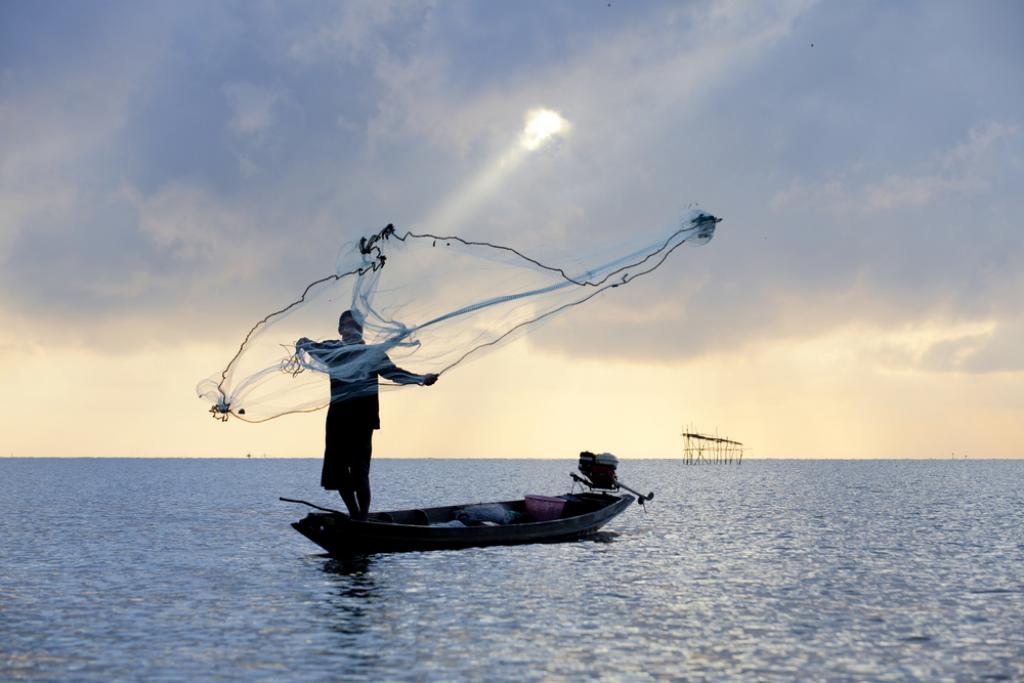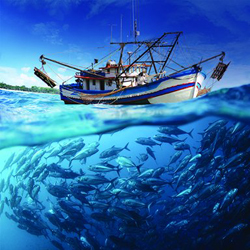Department of Fisheries

About
The Department of Fisheries is one of the departments of Faculty of Natural Resources. It was established in 1996 to support education and research related to aquaculture and fisheries sciences. The Department of Fisheries has academic staff in the field of fisheries, aquaculture, aquatic ecology, propagation and culture of aquatic organisms, and processing of fisheries products from a variety of disciplinary backgrounds. Currently the department has 10 full-time faculty members and 158 students. Our mission is to excel in providing multidisciplinary and experimental learning for undergraduate and graduate students interested in aquaculture, fisheries and aquatic environments, to conduct pioneering research on topics related to understanding and managing these industries and aquatic environments, and to communicate our findings to regional, national, and international audiences.
Department Values and Operating Principles
We study and investigate the biology, ecology and other biological and non-biological aspects of the environment of aquatic organisms and how to protect, and sustainably exploit these renewable resources, and emphasize on reproduction and culture of aquatic organisms to enhance their stocks and to supply human food through aquaculture. Despite the increasing environmental pollution, global warming and climate change, we try to conserve fragile aquatic ecosystems such as rivers, lakes and seas and use their resources wisely. We strive to contribute to the local, regional and national economy of through aquaculture and the processing of fishery products while protecting fishery stocks. Our department conduct innovative research from organism to ecosystem scale and recognized as leaders in fisheries, aquaculture, aquatic biology, sustainable fisheries management, and aquatic resources conservation. We study natural systems and diverse species and present solutions to foster the sustainable use of aquatic resources and are committed to give the best quality teaching and guidance in an interdisciplinary manner.
Department Values and Operating Principles
We study and investigate the biology, ecology and other biological and non-biological aspects of the environment of aquatic organisms and how to protect, and sustainably exploit these renewable resources, and emphasize on reproduction and culture of aquatic organisms to enhance their stocks and to supply human food through aquaculture. Despite the increasing environmental pollution, global warming and climate change, we try to conserve fragile aquatic ecosystems such as rivers, lakes and seas and use their resources wisely. We strive to contribute to the local, regional and national economy of through aquaculture and the processing of fishery products while protecting fishery stocks. Our department conduct innovative research from organism to ecosystem scale and recognized as leaders in fisheries, aquaculture, aquatic biology, sustainable fisheries management, and aquatic resources conservation. We study natural systems and diverse species and present solutions to foster the sustainable use of aquatic resources and are committed to give the best quality teaching and guidance in an interdisciplinary manner.
Facilities and Equipment
-
TeachingLearning and mastering any field of knowledge and technology, including fisheries and aquaculture, not only depends on the knowledge itself, related equipment and facilities, but also on the quality of education and training in that field. Within the University of Guilan, Department of Fisheries is responsible for academic teaching and research in the field of aquaculture and fisheries and delivers education and training programs to students interested in entering the aquaculture, fishing, environmental and food industries. We try to have an environmentally friendly approach to the management of aquatic environment, aquatic organism culture and fisheries stocks exploitation through our research and teaching. Teaching methods include fieldwork, lectures, seminars, small-group learning, individual tutorials, and group work using high-tech facilities.
-
ResearchOur department members are researchers with expertise in different aspects of fisheries and aquaculture fields, including ichthyology, sea pollution, aquatic resources management, aquatic acoustics, fish physiology, aquaculture nutrition, fish diseases, and fish genetics and biotechnology. They are nationally and internationally well-known researchers and authors with outstanding publications who are interested in using their knowledge and expertise in teaching and doing research in aquaculture and fisheries.
-
Publication

























